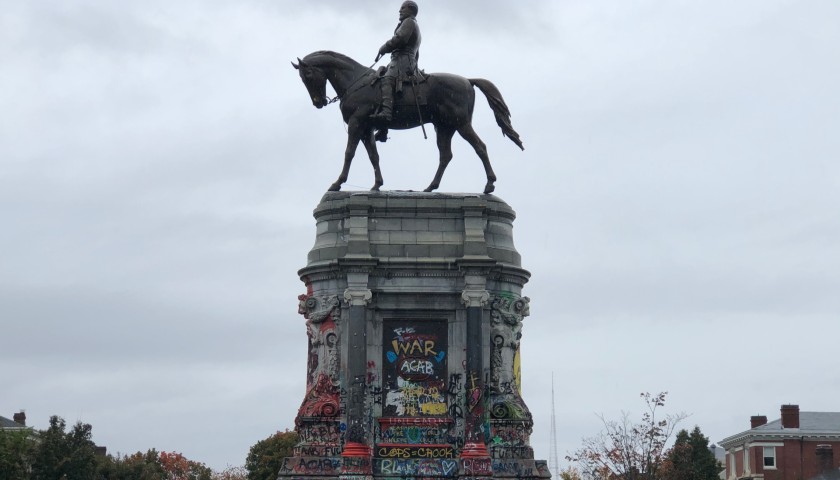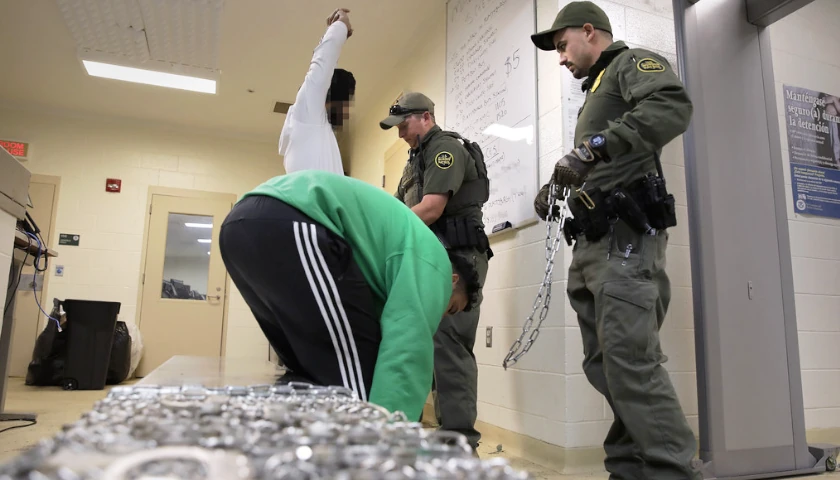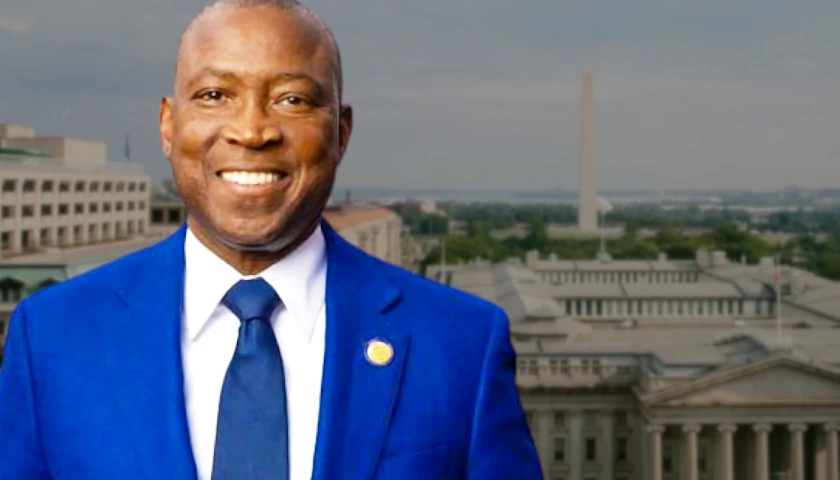The Virginia Supreme Court heard arguments for two lawsuits blocking the removal of the Robert E. Lee statue in Richmond on Tuesday.
A year ago, protests sparked by Minneapolis’ police treatment of George Floyd spread across the country. In Virginia, those protests spurred politicians to start removing controversial Confederate monuments. Although Richmond Mayor Levar Stoney was able to quickly remove most of the monuments on Monument Avenue, the most famous monument — a huge statue of Lee — sits on state property ceded to the state under conditions that have complicated efforts to remove the bronze general.
After Governor Ralph Northam ordered the removal of the Lee monument in June 2020, two lawsuits lead to injunctions blocking removal of the monument while the cases worked their way through the courts. The plaintiffs argue that late-1800s covenants protect the monument, but a Richmond Circuit Court ruled in October that since it’s no longer public policy to hold the Confederacy in reverence, those covenants are unenforceable because they don’t match current policy.
In back-to-back hearings Tuesday morning, lawyers argued Taylor, et al. v. Northam, et al. and Gregory v. Northam, et al.
“Ultimately, the restrictive covenants that we rely on are, and were valid and enforceable,” Taylor lawyer Patrick McSweeney said on Tuesday.
“I’m here today representing a man named William Gregory who is the great-grandson of two of the grantors to the Commonwealth of what we know as the Lee Circle. And I am going to do my best today to convince you that he is the owner in gross of the Lee Circle,” Gregory attorney Joseph Blackburn, Jr. said on Tuesday. “Mr. Gregory owns that interest in land because he either got it through wills from his ancestors or through attestate succession.”
The Office of the Attorney General used similar arguments in both cases.
In Taylor, lawyer Toby Heytens said, “This case is not about whether the people of 1890 had the power to put this statue up, or about whether the people of 1890 to 2020 had the power to leave it up. This case is about whether a handful of private individuals possess a judicially-enforceable right to override the decision of the Commonwealth’s political branches and the will of many of their own neighbors, to force the Commonwealth of today and tomorrow to continue to maintain this statue indefinitely.”
In Gregory, Heytens said, “This case fails for all of the same reasons why the Taylor claims fail.”
He added, “In short, no court has ever recognized a personal inheritable right to dictate the contents of core government speech about a matter of racial equality and this court should not be the first one ever to do so.”
On Tuesday afternoon, some protesters marched for a few hours in Richmond, reporter Arianna Coghill tweeted.
The hearing came the day after Charlotte the Charlottesville City Council voted to remove statues of Lee and Stonewall Jackson, according to CBS News. The Virginia Supreme Court authorized that move in an April ruling.
Virginians now wait for the Supreme Court’s ruling in Taylor and Gregory.
– – –
Eric Burk is a reporter at The Virginia Star and the Star News Network. Email tips to [email protected].




